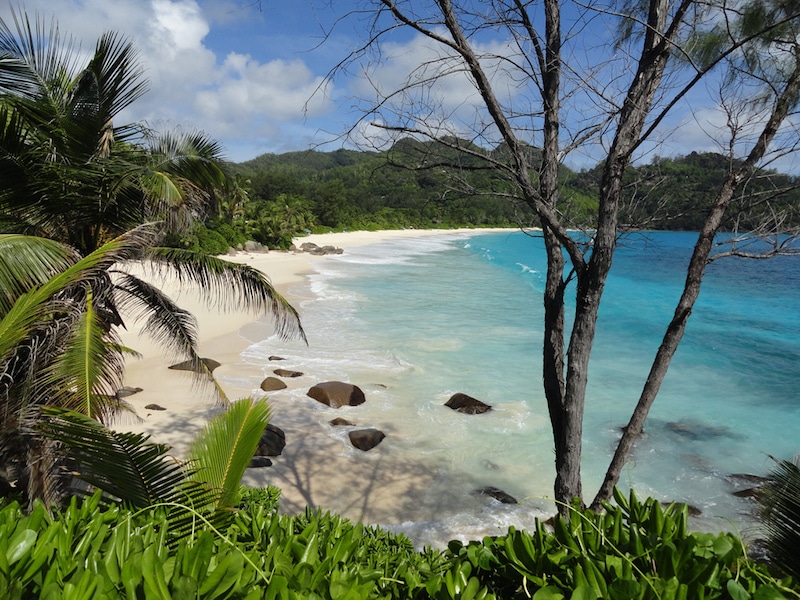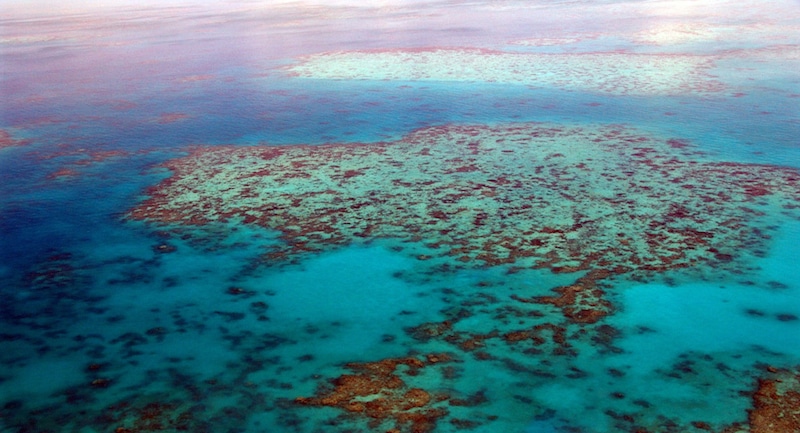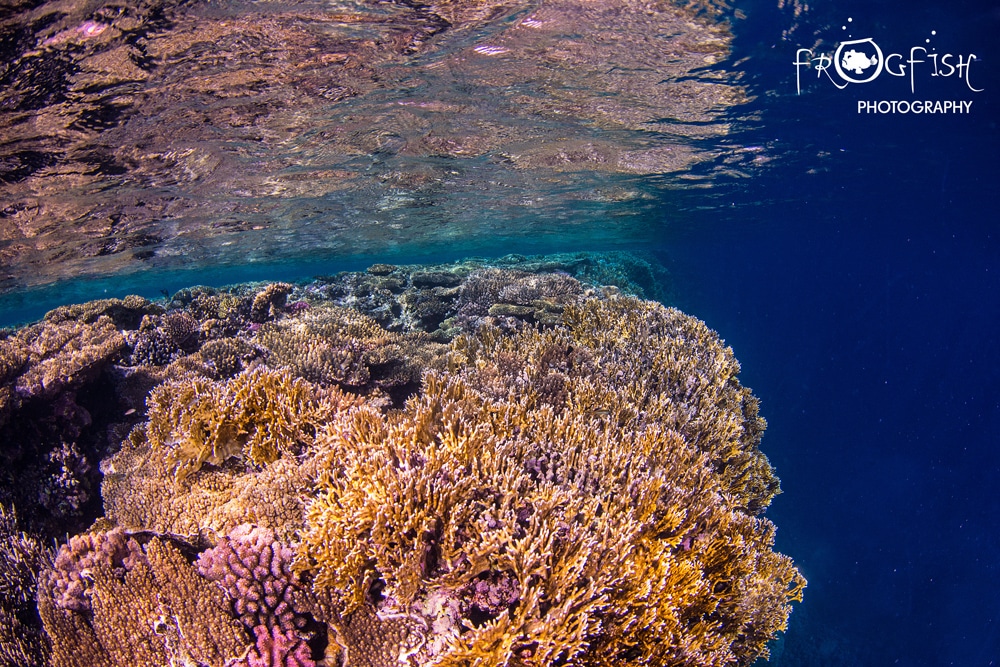News
Top Liveaboards for New Divers

Learning to dive is an exciting time and almost every diver remembers their first breath underwater and the first dive site they explored. There are many great destinations for new divers to experience once qualified, including liveaboard safaris perfect for gaining confidence and skills amongst world-class dive sites.
Here are our top 10 liveaboard destinations for new divers:
Great Barrier Reef, Australia
The Great Barrier Reef, stretching for 2300 kilometres along the coast of Queensland, is perfect for new divers. There are numerous Australian liveaboards to choose from and many don’t require a minimum number of dives to participate. Diving is possible all year, with the summer months (December/January) offering the best visibility and a water temperature of 30 degrees Celsius. With water visibility averaging over 40 metres in the Coral Sea and diverse marine life at numerous sites, this area of Australia offers an ideal introduction to liveaboard diving.
The Bahamas
The Bahamas is known for easy and consistent dive conditions, making it perfect for new divers. It is a shark hotspot where diving with inquisitive Tiger Sharks in crystal clear water is the norm. Divers can join a Tiger Beach Liveaboard off Grand Bahama and enjoy dive sites ranging from 6m to 30m depth, with little or no current. Some companies will request an Open Water certification with a minimum of 30 dives. There are also dive companies that offer Tiger Shark diving with less dive experience required. October to January are the best months to visit for peak Tiger Shark season.
Red Sea
The Red Sea is known for colourful dive sites with soft and hard corals, great visibility, and an abundance of fish life and shipwrecks. There are numerous day boats from Sharm el Sheikh that visit well-known Ras Mohammed Marine Reserve and the Straits of Tiran, plus accessible shore dives. The best way to explore off-shore sites and avoid the crowds is on an Egypt liveaboard departing from Sharm el Sheikh or Hurghada. Diving is possible all year and there is an abundance of dive sites and liveaboard itineraries to choose from. Check dives are common on Egypt liveaboards, helping staff to ensure they plan the right dives for all experience levels.
Thailand
Thailand is a favourite for new divers and the combination of diverse dive sites, affordable liveaboard diving, and stunning landscapes, attracts divers each year. Dive sites include reef diving, walls, wrecks, pinnacles, caverns and more. There is abundant marine life to enjoy including Manta Rays and Whale Sharks, plus diving is possible year-round. Both short and long liveaboard itineraries are available, making it a great destination for gaining an Open Water certification and hopping aboard.
Seychelles
The Seychelles is a great destination for divers to experience sailing aboard a modern yacht or traditional schooner, whilst enjoying reef diving amongst this archipelago of 115 islands. Dive site depths of the Inner Islands are 8 to 30 meters, with easy conditions, making it ideal for new divers. The marine life is diverse, with octopus, moray eels, nudibranchs and sharks commonly seen. Diving is possible year-round and a Mahé liveaboard in October or November offers the chance to swim with visiting Whale Sharks.
Sri Lanka
Sri Lanka, a small island off the coast of India, has liveaboard dive safaris in the Northwest Kalpitaya that offer incredible diving for both new and experienced divers. The coral reef at Northwest Kalpitaya has blacktip reef sharks and the chance to see Blue Whales, Humpback Whales, Sperm Whales, and diverse reef fish species. The liveaboards are luxurious, check dives are conducted to ensure new divers are placed within groups of similar abilities, and the water visibility is up to 40 meters. Liveaboards set sail during November to February.
Solomon Islands
The Solomon Islands is made up of an archipelago of 922 islands and has pristine reefs with over 500 species of coral, plus numerous wrecks from World War II to explore. There are over 600 aircraft and 200 varieties of other wreck to explore in the waters off the Florida Islands and some of the wrecks can be enjoyed by snorkelers and recreational divers alike. Both short and long liveaboard safaris are available, from 2 to 15 days’ length, and there is no minimum logged dives requirement on many of the liveaboards.
Cuba
The Cuban government only permits a certain number of people to dive there each year, resulting in healthy and unspoilt marine reserves such as the Jardines de la Reina or ‘Gardens of the Queen’ and Canarreos Archipelago. Diving in Cuba is suitable for new divers, has easy dive conditions, and is known for excellent night diving. The diversity of life is staggering; with over 700 species of fish, including 100 shark species, and mangroves with resident manatees. The best season to visit is December to April.
Belize
Divers visiting Belize can enjoy the Belize Barrier Reef, the largest in the Northern hemisphere, and the famous Blue Hole. The dives include shallow coral reefs, wall dives, drift dives, and deep dives in the Blue Hole. There are plenty of sites suitable for new divers and marine life including groupers, jacks, Eagle Rays and turtles. Whale Sharks can be seen at Placencia from April to June.
Turks and Caicos
This archipelago of 40 coral islands is rich in marine life, with Caribbean Reef Sharks, Nurse Sharks, Hawksbill Turtles, Bottlenose Dolphins and Eagle Rays being commonly seen. It is also possible to see Humpback Whales during January to March. Liveaboard diving is available all year and the Turks and Caicos have calm seas and consistent water temperatures year-round. It is a great destination for new divers and non-divers are also welcome aboard.

Discover more liveaboard diving holiday solutions around the world at Liveaboard.com.
Gear News
Introducing the TR-80, IR-50 and CS-30 Regulators from DYNAMICNORD

Whether you are a beginner or a professional diver – with the three new main regulators from DYNAMICNORD, everyone will find their favourite regulator. They all look super stylish.
Excellent performance with the TR-80
Quality and performance are the be-all and end-all for regulators. It is not for nothing that the TR stands for Tec Reg. The innovative design of the TR-80 guarantees absolute reliability – even in ice-cold waters.

Perfect breathing effort at 0.8 J/l / certified for diving in waters below 10 degrees / structural design made of solid brass for best cold protection / membrane-compensated design with dry seal of the first stage / reduced exhalation effort thanks to optimized exhalation membrane and bubble deflector / adjustable Venturi (dive/predive) and adjustment knob for individual inhalation comfort / innovative design of the front cover prevents free-flow in strong currents or when diving with scooters / design made of sandblasted brass, matt chrome finish / 2 HP and 4 LP outlets / mouthpiece made of high-quality, anti-allergic silicone for maximum comfort.


Amazing underwater adventures with the IR-50
The IR-50 is the top regulator for advanced and experienced divers. Natural breathing is the essence of this regulator.

Ideal breathing effort at 0.8 J/l /certified for diving in waters below 10 degrees / compensated membrane / adjustable venturi (dive/predive) and adjustment knob for individual inhalation comfort/ outlet valve and deflector for minimum exhalation effort and reduction of bubbles on the face / design made of sandblasted brass, matt chrome finish / 2 HP and 4 NP outlets / mouthpiece made of high-quality, anti-allergic silicone for maximum comfort.


The Workhorse – our CS-30
For diving centres and diving beginners – the workhorse stands for strong construction, reliability and robustness. Perfect for your training.

Optimal breathing effort at 0.8 J/l /recommended for diving in waters above 10 degrees / non-compensated piston / adjustable venturi (dive/predive) / outlet valve and deflector for minimum exhalation effort and reduction of bubbles on the face / design made of sandblasted brass, matt chrome finish / 1 HP and 3 NP outlets / mouthpiece made of high-quality, anti-allergic silicone for maximum comfort.


Octopus OP-30
The OP-30 is the ideal addition to all DYNAMICNORD regulators. It is identical in construction to the CS-30.

The TR-80, IR-50, CS-30 (DIN & INT) regulators and the Octopus OP-30 are available from DYNAMICNORD dealers and in the online store.
DYNAMICNORD – Your Outdoor Companion.
Marine Life & Conservation
Paul Watson Released as Denmark Blocks Japan’s Extradition Bid

Renowned anti-whaling activist Paul Watson has been released from custody in Greenland after spending five months in detention. Denmark’s Justice Ministry rejected Japan’s request for his extradition, citing insufficient guarantees that his time already served in custody would be credited against any potential sentence.
The 74-year-old Canadian-American was arrested on July 21 in Nuuk, Greenland’s capital, when his ship docked to refuel. His arrest was based on a 2012 Japanese warrant related to a 2010 encounter in Antarctic waters. Japan alleged Watson obstructed operations and caused damage to a whaling research ship during efforts to disrupt illegal whaling. Watson has consistently denied these claims, maintaining his commitment to marine conservation.
Denmark, which oversees extradition matters for Greenland, concluded that while the legal conditions for extradition were met, the lack of assurances from Japan regarding time-served credit made extradition untenable.
In a video shared by his foundation, Watson expressed gratitude and relief, saying, “After five months, it’s good to be out… and good to know they’re not sending me to Japan.” He added that the most difficult part of his time in custody was being separated from his two young sons.
Watson is a pioneering figure in marine conservation, known for founding the Captain Paul Watson Foundation in 2022 after decades of activism with the Sea Shepherd Conservation Society. His bold efforts to defend marine life have earned him widespread support, including from celebrities and conservationists. His work has also been featured in the acclaimed reality TV series Whale Wars.
Watson’s lawyer, Jonas Christoffersen, praised the decision, stating, “We are happy and relieved that Paul Watson is now free.” He added that Watson is eager to reunite with his family and continue his vital work.
The arrest occurred while Watson’s vessel, the M/Y John Paul DeJoria, was en route to the North Pacific with a team of 26 volunteers to intercept a Japanese whaling ship. His foundation described the arrest as politically motivated and emphasized that Watson’s actions were focused on ending illegal whaling practices.
Japan resumed commercial whaling in 2019 after leaving the International Whaling Commission, asserting that whale meat is a cultural tradition. Conservationists, however, continue to challenge these practices, highlighting their impact on marine ecosystems.
Despite the challenges, Watson remains steadfast in his mission to protect marine life and bring attention to whaling practices. His dedication to ocean conservation has made him a globally respected advocate for the environment.
-

 News2 months ago
News2 months agoIconic SS United States to become the World’s Largest Artificial Reef
-

 News3 months ago
News3 months agoBook Review – 52 Assignments: Underwater Photography
-

 Gear News3 months ago
Gear News3 months agoDYNAMICNORD – New German diving brand enters the British market
-

 News3 months ago
News3 months agoExploring Cenote El Pit: A Diver’s Dream
-

 Gear News3 months ago
Gear News3 months agoTry BARE drysuits (and maybe even win one!) this Friday with Sea & Sea at North West Dive Fest
-

 Marine Life & Conservation3 months ago
Marine Life & Conservation3 months agoBook Review: Coral Triangle Cameos
-

 Blogs2 months ago
Blogs2 months agoDive the Egyptian Red Sea this Autumn with Regaldive
-

 News3 months ago
News3 months ago2024 Ocean Art Underwater Photo Competition Announced


















